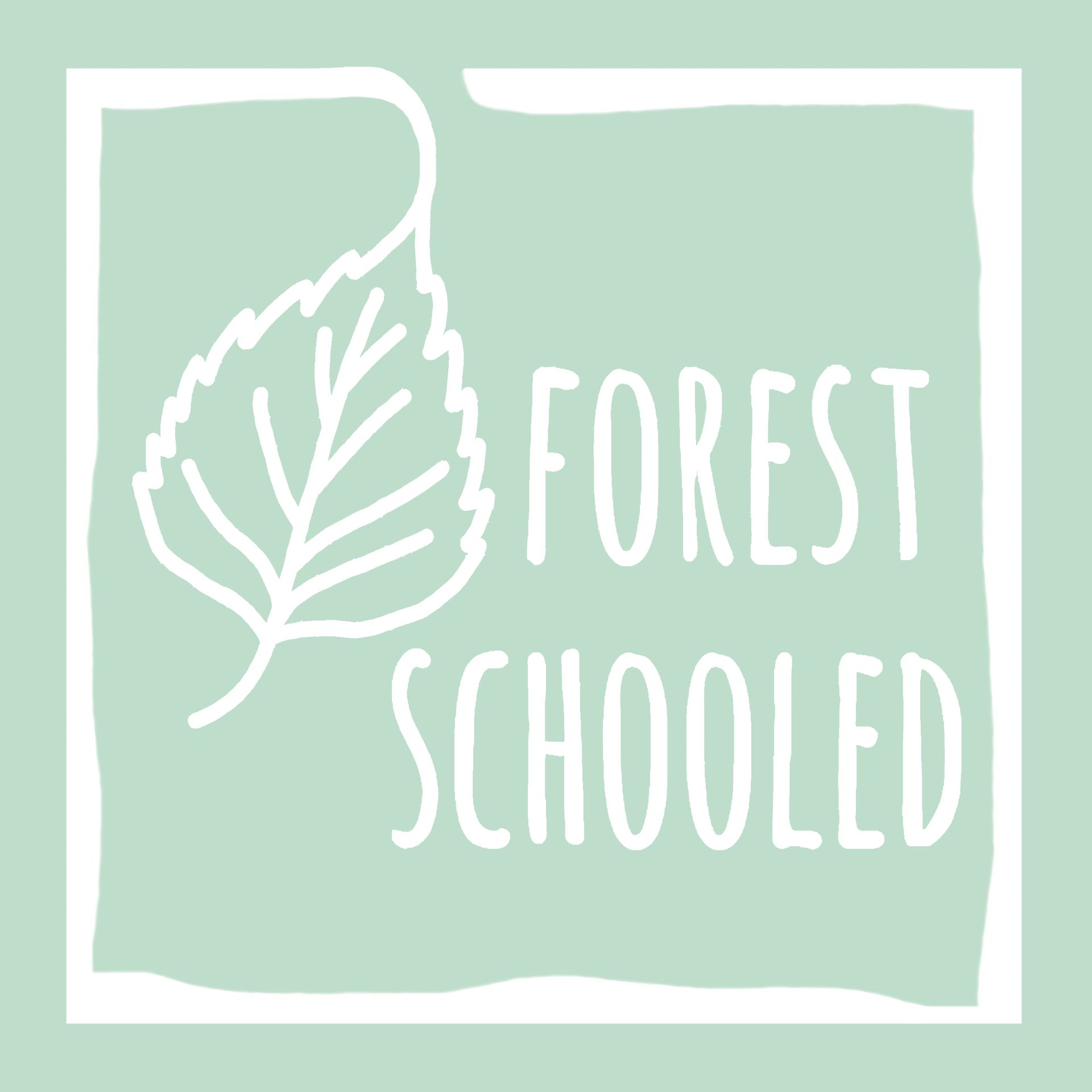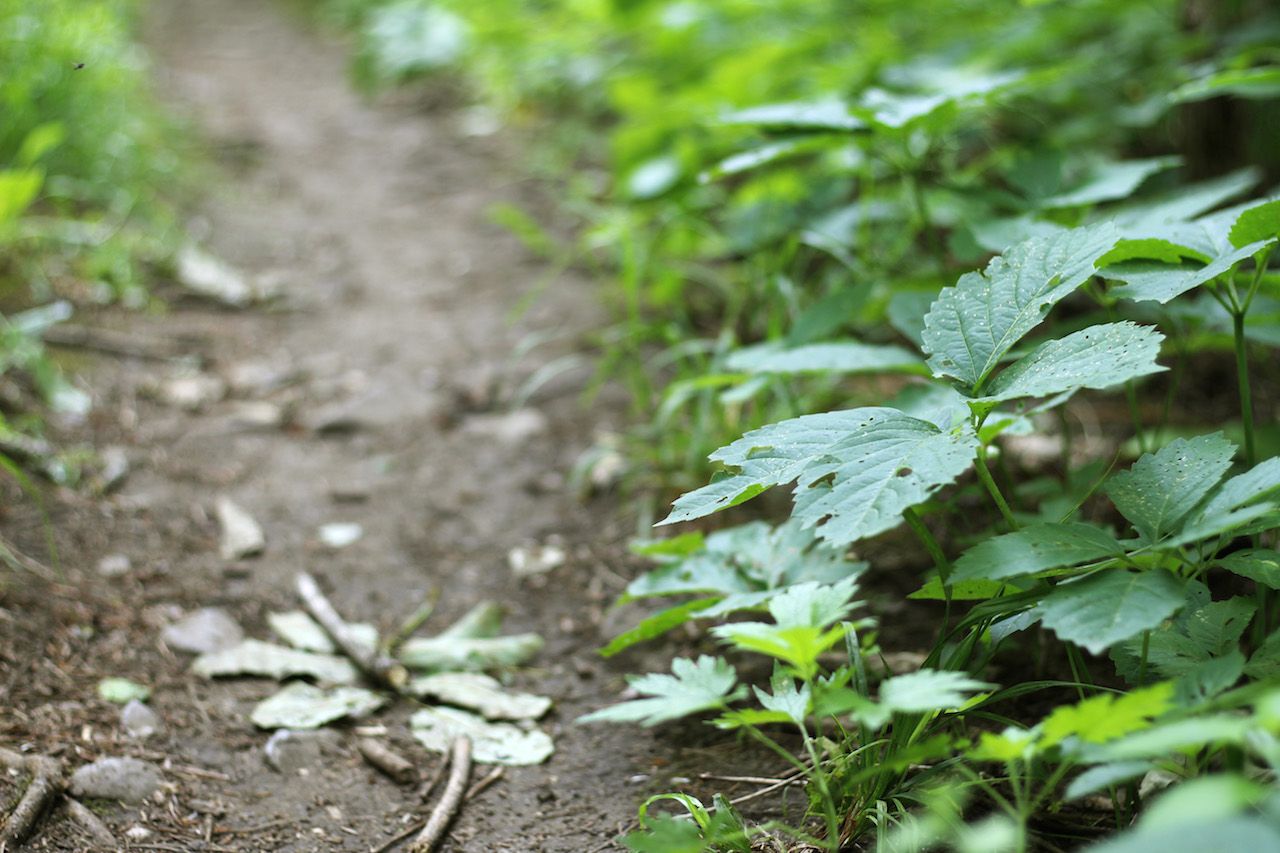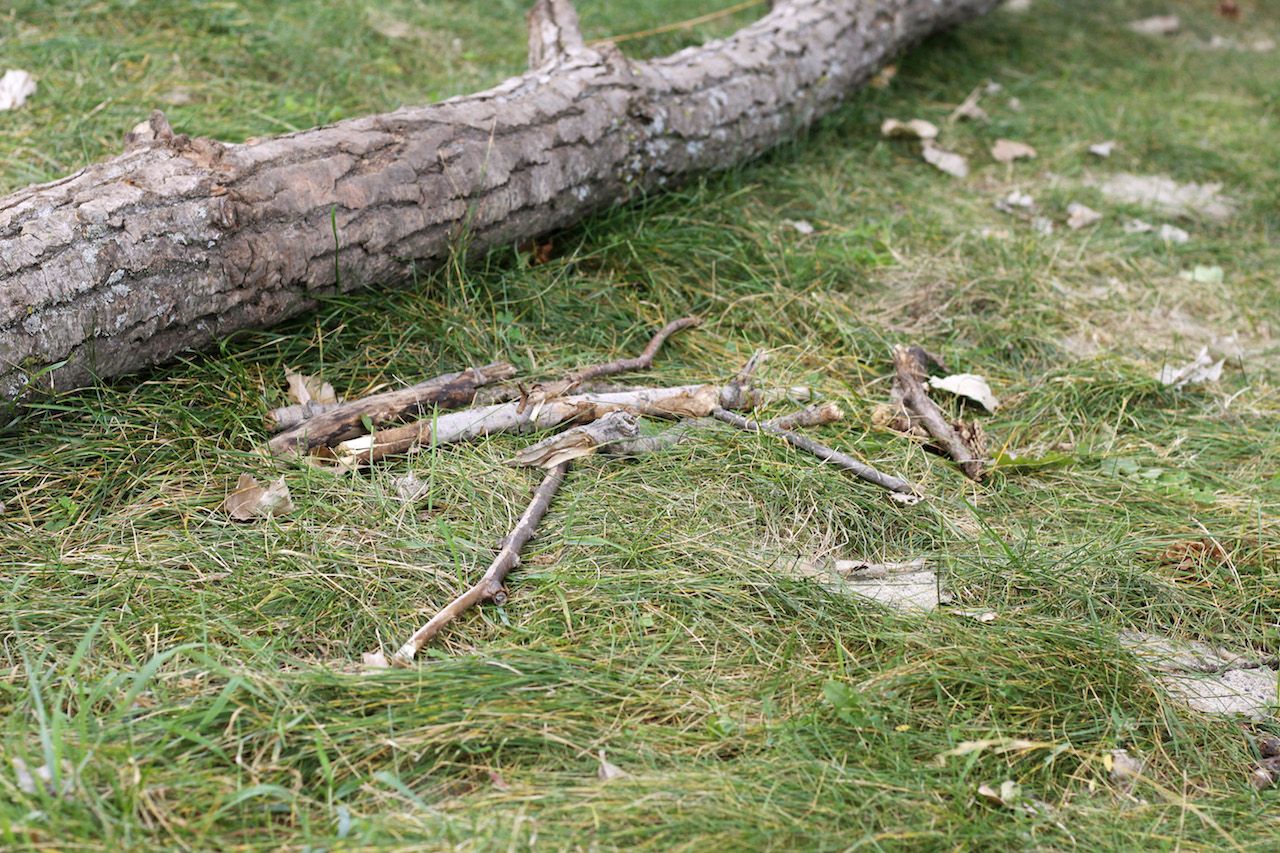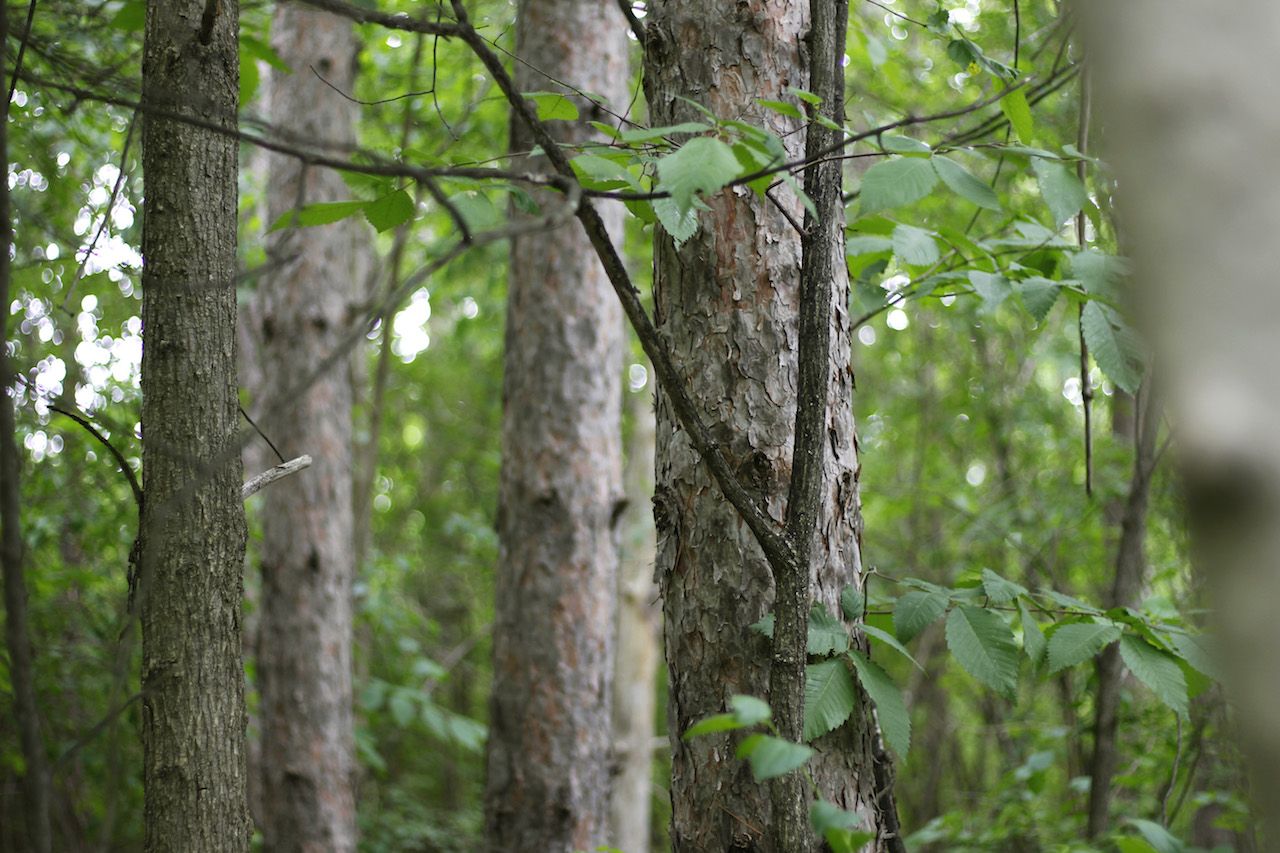
Blog
Stories from my personal journey learning about and delivering Nature-rooted programs across three different countries
Supporting behaviour through relationships, instead of rewards and punishments...
Caylin (Forest Schooled)

Empty space, drag to resize
"What do you need to feel safe?", I asked.
"I don't want to get hit by sticks!", he said.
I was standing between two boys whose play had turned into an argument, resulting in one of them throwing a stick at the other. I was mediating the conflict and things were feeling pretty heated...
This scenario is just one example from an entire year and a half of working with a group of 5 to 13 year olds without ever implementing a system of rewards and punishments. And I mean ever.
Conflicts are inevitable between children. In fact, a better way to put this is conflicts are inevitable between humans. It doesn't matter how old you are. We just start to learn how to deal with them when we're children... and often through play.
I introduced some of the ways I navigate many of these situations in the blog post Trusting Children to Resolve Conflicts in Play, however I've felt inspired lately to dive a bit deeper into this topic.
So much has changed in our individual and collective lives over the past year. This has included wider acknowledgement of the injustices embedded in our social and political systems and an urgency for those of us in positions of privilege to examine our ways of thinking, acting, and being.
Things must change. That is clear.
And the calls to "defund the police" that form a part of this wider conversation bring up excellent questions about the ways we enforce societal rules for behaviour.
These conversations are ultimately asking (and making space for diverse answers to) the question I asked the boys at the beginning of this post: "What do you need to feel safe?"
And safety comes not just from rules and laws, but also in the ways we are held accountable to them. The method most often used is "enforcement" - i.e. policing. And this plays out within our education systems too. We offer rewards for "good" behaviour, and punishments for "bad." We have systems in place for "managing behaviour" - and it's the role of the adult to ensure that everyone toes the line.

But let's think more deeply about this...
"Managing" implies we have some sort of control over other people’s behaviour and the reality is we don’t. We can influence behaviour, guide behaviour, but ultimately the way an individual behaves is down to their own personal circumstances (e.g. underlying needs that may or may not be being met - see blog post Behaviour is Communication).
Rebecca Lewis-Pankratz (2020) articulates this well in the article The Absence of Punishment in Our Schools:
"Understanding our system’s current philosophy around punishment will help us understand how we got here. The system’s philosophy lies in the choices narrative: You chose to do what you did, therefore you deserve punishment to keep you from doing wrong and we’ll offer rewards to get you on the right path. In this way, we’ll teach you to do better. This is B.F. Skinner Behaviorism 101. But what people fail to understand is we are not typically dealing with “cause and effect” brains that understand the relationship between causes and effects. We are dealing with brains in “fight/flight/freeze” and this type of approach onlyimpedestheir ability to heal and become productive, whole, contributing human beings...
Simply put, our grand experiment in punishment does not work. And it has caused a very real historical trauma that affects both people of color and people experiencing poverty."
I think we can have the illusion of control by utilizing rewards and punishments, but the underlying premise within these systems is relating to people through extrinsic and dominating forces. As soon as the reward or punishment goes away, the behaviour change likely goes away. It’s not permanent and thus requires constant monitoring and regulation.
Therefore in order for behaviour to be “managed” we also need someone or something else in a role to manage it as “behaviour enforcer” to hold the person accountable. And meanwhile all of this can have detrimental impacts to children's health and wellbeing in the process!
Lewis-Pankratz (2020) goes on to say,
"What we now know is that kids who spend a lot of time in their survival brain require a connection through their relational brain (aka, co-regulation) to get back into their thinking brain. Once a student is in their thinking brain all sorts of amazing things can happen! Healing and learning being at the top of the list. Which also leads to behavior changes."
So, what I’ve been doing is replacing the word "managing" with “supporting" behaviour. How can we encourage children (and ourselves) to understand and regulate emotions, feel empathy, and learn how to make choices that impact themselves and others positively? These are skills that require time, practice, and making mistakes to learn.
By "supporting behaviour" rather than trying to maintain control, we are also providing opportunities for individuals to hold themselves accountable. Which may bring up questions like...
How do we hold ourselves accountable when no one else is watching? Or we have no fear of being punished?
What I’ve come to is this:
How we behave impacts the quality of our relationships (with ourselves and others).
Relationships are built on trust. In fact I’ve come to view trust as the “currency” of relationships.
Every action we take either helps to build or takeaway trust. Perhaps you've heard of Brené Brown's explanation of trust being like a marble jar? Being Forest Schooled, I like to convert this analogy to a wood pile... every action either adds or takes away from the wood pile. The more wood we have the longer and brighter the fire can burn.
What I mean here is the more trust we can create through small actions over time, the better our fires (or relationships with one another) can be.
The tricky part is each individual gives or accepts trust in different ways! There is no one-size-fits-all. Thus trust is built (or stockpiled?) through open and honest communication and a willingness to listen to our own needs and that of others - and finding ways to navigate this when they don't match.
It requires vulnerability. And compromise. And learning from our mistakes so we may make amends.

So what can a community without rewards or punishments actually look like? Lewis-Pankratz (2020) outlines some crucial components:
"Kids do need boundaries to push against.Kids do need accountability.
Kids do need to repair harm.
Kids do need safe, supportive adults to do so.
Kids do need to understand their stress response system and the way their brain works.
Kids do need to be taught strategies and a space and place to get regulated."
So how do we create this in an environment like a forest or nature school? These are some of the answers I've come up with based on my experiences:
- Time. We need time to get to know each other (especially with new groups) and build trust.
- Channels of communication. Set routines that include coming together as a group, such as at the beginning and end of a session. And make sure individuals feel comfortable speaking to me one-to-one if they need to.
- Transparency from me as a leader about any decisions I make and why, and involving the group as much as possible in making decisions together (i.e. group agreements or community standards). Allowing flexibility for these to adapt and change over time as the group grows and evolves together.
- Opportunities to learn about and identify our emotions and needs so that we can understand them for ourselves and communicate them to others (e.g. encouraging chances to discuss our feelings and experiences, providing time for reflection - as a group and individually).
- A culture that nurtures emotional safety to make mistakes, own up to those mistakes, and earn trust back. This reduces the fear of messing up and the subsequent shame that punishments bring. (This also requires us adults to be trauma-informed!).
- Dedicated community building events to strengthen bonds (like celebrations, family gatherings, group games and activities - these will reflect the desires/needs of the group so there are a variety of ways to do this).
- Sufficient ratios and support for the educators so adults can feel grounded and regulated rather than stressed and overwhelmed (a supported and healthy adult who has time/space for self-care is crucial for their ability to care for others!!).
While mediating the conflict between the boys at the very beginning of this story, I could have created or enforced a rule like: No throwing sticks.
But I didn't. I instead asked the question, "What do you need to feel safe?"
And this led to a deeper conversation about the frustrations that led to the throwing of the stick in the first place and how we could move forward together. This was a process of restoring trust.
It’s something that's challenging to facilitate. It’s time consuming. It requires patience, commitment, and a whole lot of compassion for ourselves and each other.
But Lewis-Pankratz (2020) sums it up well,
"This is perhaps the hardest part of this work, because truth be told, punitive practices are quick and take less manpower from the adults. Restorative practices take time and relationships."
If you're looking to deepen your awareness and knowledge of how to work with behaviours that are challenging, I've been working with some expert facilitators to offer a new course "Intro to working WITH distressed behaviour in the outdoors." You sign up to be the first to hear about when we offer it again here.
References:
Lewis-Pankratz, R. (2020, February 28). The Absence of Punishment in Our Schools. ACEsConnection. https://www.acesconnection.com/blog/the-absence-of-punishment-in-our-schools
More resources for understanding trauma: https://www.echotraining.org/infographics/
More Posts
WANT TO GET FOREST SCHOOLED TOO?
Subscribe to my email letters, something special from me to you so we can learn together. Each one is filled with heart-felt stories from the forest, resources you may find useful, and things that hopefully bring a smile too.
Thank you!
© by FOREST SCHOOLED
